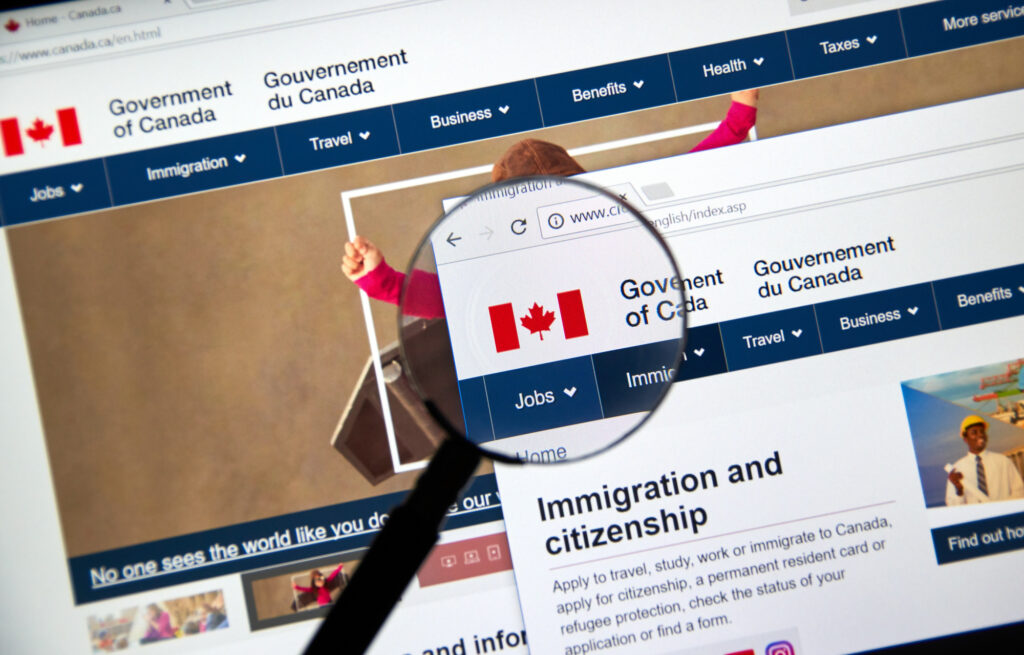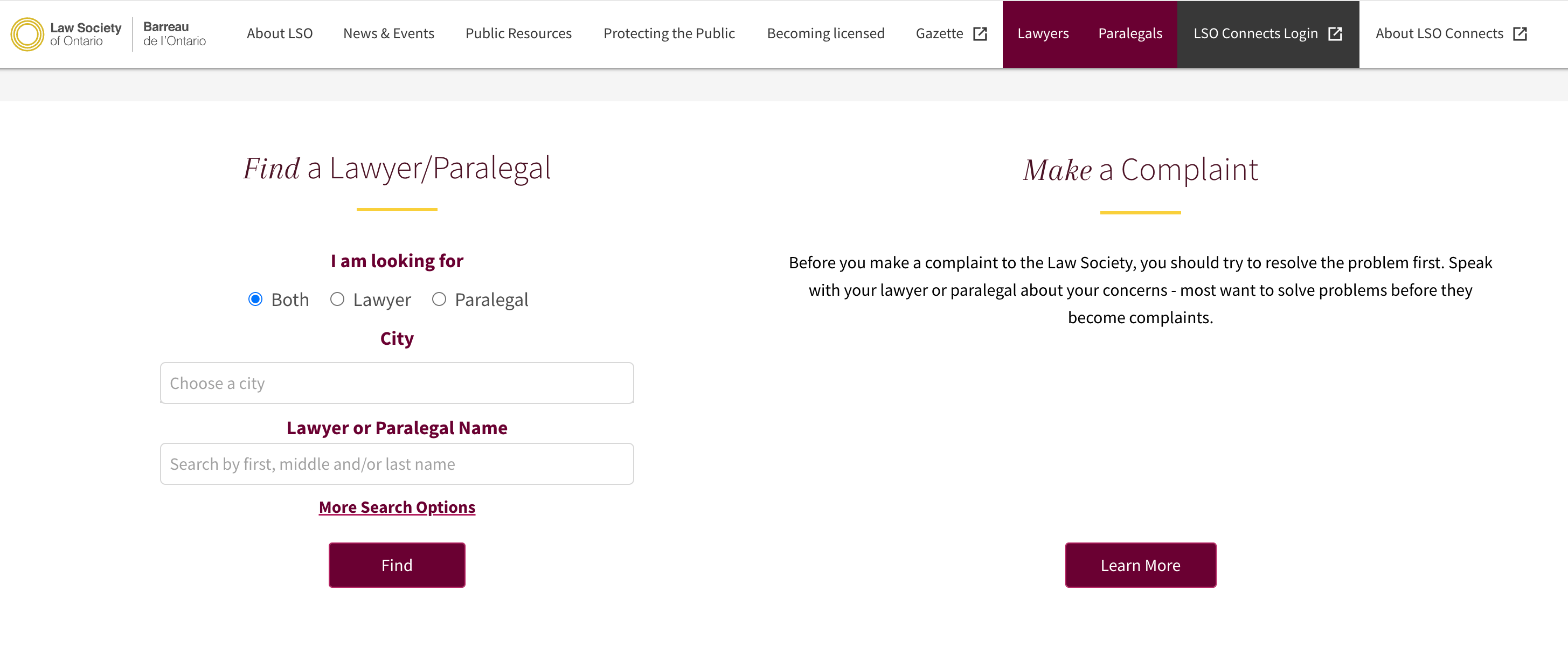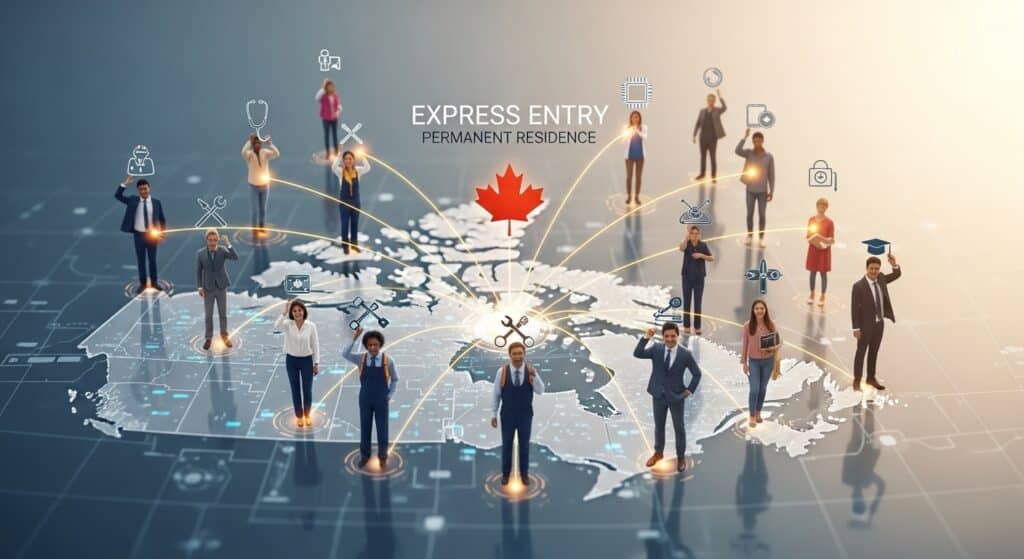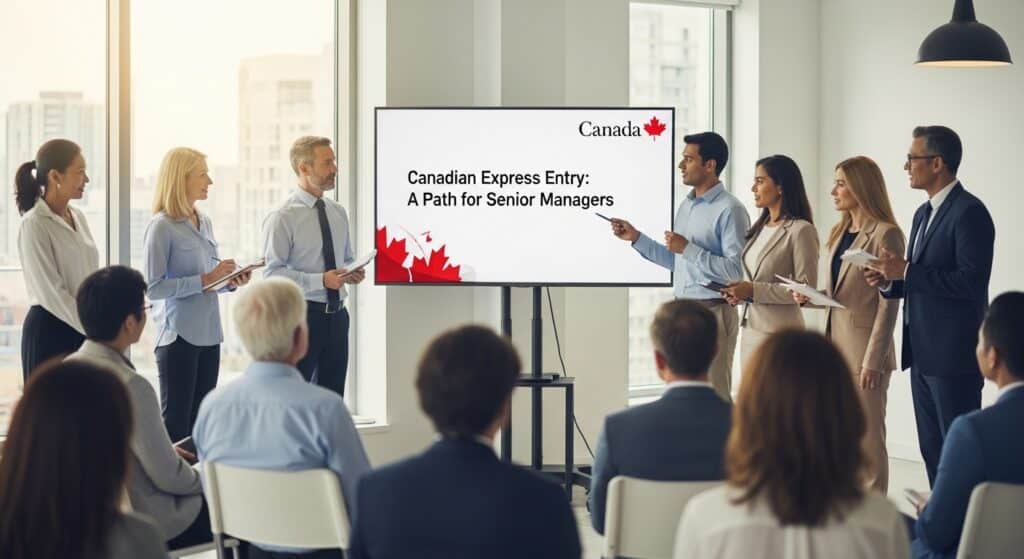Immigrating to Canada is a major life decision, and choosing the right immigration lawyer can make all the difference in your journey. But what exactly makes a lawyer the best immigration lawyer in Canada? What should you expect from a legal professional handling your case? This guide is designed to provide an honest, straightforward look at what to consider when seeking legal representation for your immigration needs.
It’s important to note the difference between an immigration lawyer and an immigration consultant. While both can assist with immigration matters, immigration lawyers are regulated by provincial law societies and have a broader scope of practice, including representing clients in court.
In Canada, immigration lawyers operate within a regulated framework set by the provincial law societies and other professional bodies that oversee legal services. These organizations ensure that lawyers meet ethical and professional standards, but beyond that, choosing the right lawyer is a deeply personal decision. Professional associations like the Canadian Bar Association (CBA) play a crucial role in maintaining the quality and ethical standards of immigration lawyers. It’s not just about credentials—it’s about trust, experience, communication, openness and a lawyer’s ability to navigate complex immigration pathways effectively.

At the end of the day, the right lawyer for you will be someone who understands your specific needs and is committed to helping you achieve your goals. I encourage you to do your research, ask the right questions (some are suggested in my article below), and make an informed choice. While every client’s situation is unique, I genuinely believe that the immigration lawyers and other professionals at Sobirovs Law Firm have the skills, experience, proven track record and dedication to not only meet but exceed the expectations of those seeking a new future in Canada.
Why Should You Choose the Best Canadian Immigration Lawyer for Your Immigration?

International migration is more common today than ever before, with people moving across borders for various reasons. Many seek a welcoming country that offers a stable future and a clear pathway to permanent residency. As Canada continuously updates its immigration policies, finding the best immigration lawyers has become essential. Experienced Canadian immigration lawyers provide comprehensive legal services for individuals, families, corporations, and businesses navigating Canada’s immigration and visa programs. Many top Canadian immigration lawyers have degrees from prestigious institutions like Osgoode Hall Law School, the University of Toronto Law School and the University of Ottawa Law School, which adds to their expertise in handling complex immigration cases. Their expertise is invaluable in handling complex cases and ensuring clients meet the latest immigration requirements.
For many immigrants, understanding Canada’s intricate immigration process is overwhelming. The legal framework governing immigration is highly regulated, making it difficult for newcomers to grasp the complexities. Most individuals embarking on their first migration experience are uncertain about the procedures and requirements, and foreign business owners face similar challenges when establishing a presence in Canada.
Canada remains a top destination for businesses and individuals worldwide. However, its immigration system is not easy to navigate—it is complex, bureaucratic, and sometimes unpredictable. Successfully securing immigration status requires more than just eligibility; it demands precise documentation, strategic planning, and professional guidance. Without transparent, honest, and knowledgeable legal assistance, the risk of delays or refusals increases significantly.
Suggested reading: How to Choose the Best Investor Visa Lawyer for Your Canadian Business Immigration Journey.
The Critical Role of a Canadian Immigration Lawyer

Your Canadian immigration journey is one of the most significant decisions in your personal or business life. The role of an immigration lawyer is both vital and demanding, as they help clients explore various immigration pathways.
1. Why is an immigration lawyer essential? Immigrating to a new country is a life-changing event, second only to major milestones like birth, marriage, or business expansion. With so much at stake, you cannot afford trial and error. A well-planned immigration strategy ensures the highest chances of success from the beginning.
2. Why is the role of an immigration lawyer demanding? Clients expect successful immigration outcomes, placing immense pressure on legal professionals. Immigration lawyers are responsible for navigating the ever-changing legal landscape, managing expectations, and guiding clients through unpredictable hurdles. Their expertise ensures the best possible pathway to Canada, even under challenging circumstances. Immigration lawyers often participate in professional associations like the Canadian Bar Association, which helps them stay updated on legal changes and best practices.
What to Consider When Choosing the Best Canadian Immigration Lawyer
So, how do you find the right immigration lawyer for your case(s)—both today and possibly in the future? What qualities should you look for to ensure confidence in your legal representation?
Every immigration file requires collaboration between the lawyer and the client, with a shared goal of achieving a successful outcome. However, understanding realistic expectations in this journey is crucial.
It’s important to be aware of the risks of using unregulated immigration consultancy services. Choosing a licensed professional over unregulated consultants ensures that you receive reliable and lawful advice.
The following list outlines key factors to consider when selecting a Canadian immigration lawyer. While not exhaustive, these insights will help you conduct thorough research before making a decision. Some factors may be more relevant to your situation than others, so take the time to evaluate each one carefully. Every aspect of this list can increase your confidence and bring you closer to the right legal partner for your Canadian immigration journey.
Let’s start with the essentials. I want you to understand 3 main issues related to Canadian immigration lawyers.
Issue 1: Understanding Canadian Immigration Law

Canadian immigration law is a dynamic and highly regulated field that governs the entry, stay, and status of foreign nationals in Canada. Administered by Immigration, Refugees and Citizenship Canada (IRCC) and enforced by the Canada Border Services Agency (CBSA), these laws outline the eligibility criteria, procedures, and pathways available for individuals and businesses seeking to immigrate. The framework covers various immigration programs, including Express Entry, Provincial Nominee Programs (PNPs), the Start-Up Visa Program, and other categories of personal and business immigration.
Understanding and navigating Canadian immigration law requires familiarity with the Immigration and Refugee Protection Act (IRPA) and the Immigration and Refugee Protection Regulations (IRPR). These legal texts are complex, and their interpretation often depends on evolving policies, case law, and administrative decisions. Immigration law is deeply interconnected with administrative law, criminal law, business law, and family law, making it essential for individuals and businesses to seek expert legal advice. The Canadian Bar Association plays a crucial role in supporting immigration lawyers by providing resources and advocacy for the profession. Canadian immigration lawyers are licensed to provide legal advice on Canadian laws and specialize in providing strategic guidance, ensuring that applicants comply with the law and maximize their chances of a successful immigration outcome.
Unlike in many other countries, providing immigration and visa services in Canada is a regulated profession. In some jurisdictions, anyone can claim to offer immigration consultancy for payment, but Canada has strict rules governing who can provide paid immigration services. If you are paying someone to assist with your immigration or visa application, it is critical to verify that they are properly licensed in Canada to offer these services. Choosing a qualified Canadian immigration lawyer ensures you receive professional, ethical, and legally sound advice, minimizing risks and avoiding costly mistakes.
Issue 2: Benefits of Hiring a Canadian Immigration Lawyer

Hiring a Canadian immigration lawyer provides significant advantages for individuals and businesses navigating the country’s complex immigration system. Immigration laws are subject to frequent updates, and legal processes can be intricate. Working with a qualified professional ensures that you receive expert guidance tailored to your unique circumstances. Here are the key benefits of hiring a Canadian immigration lawyer:
-
Expert Knowledge – Immigration lawyers possess in-depth knowledge of Canadian immigration laws and regulations, as well as related legal areas such as business law, family law, and administrative law. Their expertise helps ensure compliance and prevents common mistakes that could delay or jeopardize your application.
-
Personalized Guidance – Every immigration case is different. A lawyer provides customized advice and strategic representation, considering the specific details of your case and guiding you through every stage of the process.
-
Higher Success Rates – Having an immigration lawyer substantially improves your chances of approval. Their experience allows them to anticipate potential issues, submit strong immigration applications, and handle appeals or disputes effectively.
-
Efficient Processing – An experienced lawyer ensures that all paperwork is completed accurately and submitted on time, reducing delays and avoiding complications that could arise from incomplete or incorrect filings.
-
Protection of Rights – Immigration lawyers act as advocates for their clients, safeguarding their rights and best interests. If legal challenges arise, they can represent clients before the **Immigration and Refugee Board (IRB)**or federal courts, ensuring fair treatment and due process.
-
Access to Valuable Resources – Immigration lawyers have established networks, including government contacts and industry professionals, that can be instrumental in handling complex cases. Their knowledge of immigration trends and policy changes can also provide clients with a strategic advantage.
-
Adherence to Ethical and Professional Standards – Licensed Canadian immigration lawyers follow strict ethical and professional guidelines set by provincial law societies. They are held accountable by regulatory bodies, ensuring transparency, honesty, and professional integrity in their practice. Unlike unauthorized representatives, they are required to act in their clients’ best interests at all times.
With a Canadian immigration lawyer by your side, you can confidently navigate the complexities of immigration law, knowing that a knowledgeable and ethical professional is advocating for your success.
Issue 3: Types of Immigration Services

Canadian immigration lawyers offer a broad range of services tailored to the needs of individuals, families, and businesses. Their expertise spans various immigration categories, ensuring comprehensive legal support for different immigration pathways. The Canadian Bar Association supports immigration lawyers by providing resources and advocacy, ensuring they can offer comprehensive and high-quality services. Key services include:
-
Applications & Processing – Lawyers assist with preparing and submitting visitor visas, work permits, study permits, labour market impact assessments (LMIAs), permanent residence applications, refugee claims, and family sponsorship applications. Unlike immigration consultants, licensed lawyers have no restrictions on the types of immigration matters they can handle.
-
Immigration Appeals & Litigation – When applications are refused, lawyers represent clients in appeals, judicial reviews, and hearings before the Immigration and Refugee Board (IRB) and federal courts. Their ability to challenge negative decisions is crucial for those facing legal obstacles.
-
Business Immigration & Corporate Relocation – Immigration lawyers provide specialized services for entrepreneurs, investors, and companies looking to establish or expand operations in Canada through programs like the Start-Up Visa, Intra-Company Transfers, Global Talent Stream and Provincial Nominee Programs (PNPs).
-
Family Sponsorship & Reunification – Lawyers assist Canadian citizens and permanent residents in sponsoring family members, including spouses, children, parents, and grandparents, ensuring compliance with all legal requirements.
-
Refugee & Asylum Claims – For individuals facing persecution in their home countries, immigration lawyers provide legal representation in refugee claims and asylum applications, helping clients secure protection in Canada.
-
Citizenship & Naturalization – Lawyers guide permanent residents through the process of obtaining Canadian citizenship, ensuring all eligibility requirements are met and addressing any legal barriers.
-
Immigration Consulting & Strategy – Beyond processing applications, lawyers offer strategic immigration planning to help clients choose the most suitable pathways for their long-term goals in Canada.
By offering these comprehensive services, immigration lawyers ensure that individuals and businesses receive the right legal support at every stage of the immigration process.
Canadian immigration lawyers handle a wide array of immigration cases, ensuring that clients receive expert guidance tailored to their specific needs. Now that we have explored the three main issues related to Canadian immigration lawyers—their role, benefits, and services—let’s delve into the key inquiries you should make before choosing an immigration lawyer to represent you.
Inquiry 1: What Is the Identity of Your Immigration Lawyer or Immigration Law Firm?

Is Your Lawyer a Canadian?
This is not a question of nationality or citizenship—it’s about legitimacy, accountability, and expertise. Let’s break it down.
Canada’s global appeal as an immigration destination is a double-edged sword. On one hand, it offers vast opportunities for those seeking a new life or business prospects. On the other hand, it has also led to the rise of unauthorized agents and unregulated consultants who exploit the demand for immigration services. Many of these service providers operate outside of Canada, yet they brand themselves as “Canadian” firms, using national symbols—the red-and-white flag, maple leaf, mountains, moose, or even the word ‘Canada’ in their names—to mislead potential clients.
The reality? Many of these so-called immigration firms are not Canadian, nor are they licensed to practice Canadian immigration law. Some have never even set foot in Canada! It’s crucial to choose professionals who are licensed to provide immigration legal services. “Isn’t it strange that someone who has never been to Canada is offering to help you become a Canadian permanent resident?”
Why This Matters
Before committing to any immigration service provider, you need to verify that you are dealing with a legitimate Canadian immigration lawyer or law firm. Asking this question early in your search can help you in several ways:
✔ Ensures Local Expertise – A genuine Canadian immigration lawyer operates in Canada, understands the country’s legal framework firsthand, and possesses immigration law expertise to guide you based on real, lived experience.
✔ Provides Accountability – A lawyer licensed in Canada is subject to strict legal and ethical standards set by Canadian law societies. A non-Canadian entity is not bound by these rules, making it difficult to hold them accountable if something goes wrong.
✔ Guarantees Professional Qualifications – Unlike other countries where virtually anyone with basic English skills and an internet connection can claim to be an immigration consultant, Canada strictly regulates immigration legal services. Licensed lawyers have spent years in law school, completed rigorous licensing exams, and are monitored by law societies to ensure ethical practice. The Canadian Bar Association plays a crucial role in supporting immigration lawyers by providing resources and advocacy for the profession.
✔ Protects You from Fraud – By working with a lawyer who is actively registered with a Canadian law society, you reduce the risk of falling victim to unregulated service providers who may disappear after taking your money.
A Word of Caution
When verifying an immigration lawyer’s credentials, be reasonable in your expectations. While you should confirm their legal and permanent residency status, it is not appropriate to ask for a Canadian passport or permanent resident card—citizenship is not a requirement to practice law in Canada. Instead, focus on verifying their legal standing and credibility.
How to Verify a Canadian Immigration Lawyer or Law Firm
To ensure you’re working with a real Canadian immigration lawyer, follow these steps:
-
Google Their Name and Law Firm – Check if they have a physical address in Canada and a Canadian phone number. However, don’t rely solely on this—some unauthorized agents rent virtual addresses to appear Canadian.
-
Check the Law Society’s Directory – Every Canadian lawyer must be registered with a provincial law society. If they claim to be in Ontario, search the Law Society of Ontario’s database. The same applies to other provinces. Ensure the lawyer is listed as an active member in good standing and verify their immigration law credentials.
-
Ask Directly – A legitimate lawyer will have no problem telling you where they are licensed to practice. If they hesitate or give vague answers, that’s a red flag.
-
Search on LinkedIn – Check their professional profile to see if their work history aligns with what they claim. A reputable law firm and a lawyer should have a transparent online presence.
Key Questions to Ask Your Immigration Lawyer
When verifying your lawyer’s identity, ask these direct questions:
-
What is your full legal name?
-
What is the full name of your law firm?
-
What are your immigration law qualifications?
-
Are you listed on the firm’s official website?
-
What is your postal address and telephone number?
-
Is your address and phone number Canadian?
-
Are you listed in the Law Society’s directory?
-
What is your current status in the Law Society’s directory?
These questions will help you determine whether you are working with a real Canadian immigration lawyer or falling into the trap of unauthorized service providers.
By taking the time to verify credentials and ask the right questions, you safeguard your future in Canada and ensure that your immigration process is in the hands of a qualified, accountable professional.

Inquiry 2: What Are the Qualifications of the Lawyer According to the Law Society?

Does the Lawyer Have a Law Degree?
Start with a simple but essential question. Unlike Mike Ross from the TV series Suits)))), who pretended to be a Harvard Law graduate, all practicing lawyers in Canada must hold a law degree. In Canada, immigration law is a regulated profession, and only those who have met strict academic and licensing requirements are legally allowed to provide immigration legal services.
There are two primary pathways to becoming a licensed lawyer in Canada:
✔ Graduating from a Canadian Law School – Lawyers who hold a Juris Doctor (JD) or Bachelor of Laws (LL.B.) have completed a three-year full-time program at a Canadian law school. This formal immigration law education ensures they are well-prepared to handle complex legal matters.
✔ Completing the National Committee on Accreditation (NCA) Process – Lawyers who obtained their degrees from a non-Canadian law school must go through a rigorous NCA accreditation process before becoming eligible for bar admission in Canada. Lawyers who have successfully completed this process may have “NCA Qualified” noted in their credentials.
In both cases, lawyers must pass the bar exams and be licensed by a Canadian law society to practice law.
How to Verify a Lawyer’s Academic and Professional Credentials
You can quickly check a lawyer’s qualifications through these steps:
🔹 Law Firm’s Website – Review the lawyer’s official bio and confirm their academic and professional background, including any immigration law training they may have received.
🔹 LinkedIn Profile – Many lawyers list their degrees, accreditations, and licensing information on LinkedIn. Read their profile carefully.
🔹 Law Society’s Directory – Each Canadian province has a law society directory where you can check a lawyer’s status, licensing, and disciplinary history.
The Canadian Bar Association provides resources and support to ensure lawyers maintain high ethical and professional standards.

Key Questions to Ask Your Immigration Lawyer
At this stage, ensure you ask your lawyer the right questions:
✔ What kind of academic degree(s) do you have? – Confirm whether the lawyer has a JD, LL.B., or NCA qualification and from which institution.
✔ Are you currently licensed to practice law in Canada? – Licensing ensures the lawyer meets Canadian legal standards.
✔ Do you specialize in immigration law? – Lawyers in Canada can practice any area of law once licensed, but having an immigration law specialization is crucial for handling your case effectively.
✔ Are you listed as a practicing lawyer in the Law Society’s Directory? – Some lawyers hold valid licenses but choose not to practice. A non-practicing lawyer cannot represent you before Canadian immigration authorities or in federal court.
✔ How long have you been practicing immigration law in Canada? – Experience matters. The more seasoned the lawyer, the better they can handle complex cases.
Why This Matters
Immigration is a major life decision, and working with a qualified, experienced immigration lawyer reduces risk and increases your chances of success. By verifying credentials before hiring, you can ensure your legal representative has the education, licensing, and immigration law experience necessary to guide you through the immigration process with confidence.
Inquiry 3: Presence – Physical and Online Visibility

One of the most critical issues in the immigration law practice is the existence of ghost consultants—unauthorized individuals offering immigration services without proper credentials. Engaging with these consultants is illegal, and if caught, not only can your immigration application be denied, but you could also face a five-year ban from applying to any Canadian visa program.
Why Online Presence Matters
In today’s digital world, there is no valid excuse for a licensed immigration lawyer to lack a professional online presence. A legitimate immigration lawyer or immigration law firm should have at least:
✔ A law firm website with clear contact details, professional credentials, and background information. ✔ A LinkedIn profile that provides professional history and allows others to verify their credentials. ✔ A business email address—preferably using a custom domain rather than free services like Gmail, Yahoo, MSN, Hotmail, or AOL.
The Canadian Bar Association supports immigration lawyers by providing resources and advocacy, ensuring they maintain a strong professional presence.
If a lawyer is seriously handling immigration matters for international clients, they should be visible and accessible both online and offline. If their digital footprint is weak, it raises concerns about their legitimacy. “Doesn’t it seem suspicious if an immigration lawyer, who is supposed to guide people into a new country, has no traceable online or professional presence?”
How to Verify an Immigration Lawyer’s Presence
To ensure you’re dealing with a real and qualified immigration lawyer, conduct basic online research using these steps:
🔹 Google their full name and law firm – You should find multiple references, including a website, legal directories, and media mentions. A complete lack of online presence is a red flag.
🔹 Check their website – A professional law firm website should provide:
-
The lawyer’s full name and immigration law credentials
-
The firm’s contact information (physical address, phone, and email)
-
Details about legal services and immigration programs
🔹 Review their LinkedIn profile – A well-connected lawyer should have a LinkedIn presence, with interactions from peers, testimonials, or professional connections in the industry.
🔹 Check their email domain – A reputable lawyer should use a professional business email (e.g., name@lawfirm.com) rather than free email services. Free email addresses may indicate a lack of professionalism or, worse, a scam.
Key Questions to Ask Your Immigration Lawyer
At this stage, ask these direct questions:
✔ Does the lawyer or law firm have a website?✔ What kind of content is on that website? Does it provide enough information to make you feel comfortable working with them? ✔ What are the lawyer’s immigration law qualifications? Ensure they have the necessary background and expertise in immigration law. ✔ Does the lawyer use a business email address?✔ Does the lawyer rely on free email providers such as Gmail, Yahoo, MSN, or Hotmail?✔ Does the lawyer or firm have a LinkedIn profile? If so, do others in the legal or immigration field recognize or interact with them?
Why This Matters
A well-established physical and digital presence is a basic expectation for any professional immigration lawyer. If a lawyer lacks visibility, uses a free email account, or has no digital footprint, proceed with extreme caution.
Immigration is a life-changing process—ensure your lawyer is a real, accountable, and verifiable professional with immigration law expertise before you trust them with your future.
Inquiry 4: Is Your Immigration Lawyer Transparent?

Transparency of Legal Fees
It’s no secret that immigration lawyers and law firms operate as for-profit businesses. Immigration legal services are not free, and moving from a foreign country to Canada requires a financial commitment, particularly when working with a highly experienced immigration lawyer.
In today’s world, transparency in legal costs should be a given, not an exception. As a potential client, you should have a clear estimate of the legal fees involved before making a decision. An immigration law firm that is upfront about costs fosters a relationship built on trust, honesty, and professionalism. Hidden fees, unexpected charges, or unexplained fee increases should have no place in the immigration process. The Canadian Bar Association provides guidelines and support to ensure lawyers maintain transparency and ethical billing practices.
To avoid financial surprises, every client should receive a well-written retainer agreement that outlines:
-
Legal fees and whether they are charged on a fixed-fee or hourly basis.
-
Government fees related to your application must be paid separately.
-
Disbursements include costs for external services, such as hiring business plan writers, accountants, or commercial real estate lawyers for business immigration cases.
-
Additional costs for extra services beyond the initial agreement.
A transparent lawyer will clearly explain the financial breakdown so you understand exactly what you are paying for and why.
Key Financial Considerations When Hiring an Immigration Lawyer
✔ Flat Fee vs. Hourly Rate – Most immigration lawyers charge a fixed fee for straightforward cases. However, cases involving criminal inadmissibility, medical inadmissibility, past visa refusals, or misrepresentation may require an hourly billing structure due to their complexity. Understanding the cost structure of immigration law services is crucial to avoid unexpected expenses.
✔ Government Fees – Immigration lawyers do not set government fees. While they may facilitate the payment process for you, these costs are separate from legal fees.
✔ Use of External Experts – If your case requires a business plan, financial reports, or legal due diligence, your lawyer may work with third-party professionals whose fees you will be responsible for.
✔ Disbursements – These are non-legal costs associated with your application, such as translation services, courier fees, and application filing fees. The lawyer should list them clearly in your retainer agreement.
✔ Scope of Work & Additional Charges – Legal fees should cover a specific scope of work. Ask your lawyer what happens if your case requires extra work beyond the original agreement. A transparent lawyer will explain the potential cost implications upfront.
Key Questions to Ask Your Immigration Lawyer
When discussing fees, ensure you ask the following:
✔ What are your payment terms?✔ What are the immigration law fees and expected disbursements?✔ Will outside experts be involved in my case, and what are their fees?✔ Can I estimate my legal costs online without speaking to a lawyer?✔ Are you fully transparent about all costs related to my case?✔ If additional work is required beyond the retainer agreement, what will I pay?✔ What specific services am I getting for my money?
Why Transparency Matters
Legal costs should never be a mystery. An immigration law practice that is clear about fees and disbursements from the beginning is a practice you can trust. Asking the right questions ensures that you are financially prepared and that there are no surprises down the road.
Before signing any agreement, make sure you fully understand what you are paying for—and that your lawyer is committed to openness, fairness, and ethical billing practices.
Inquiry 5: What Content (Printed and/or Online) Is Produced by the Lawyer?

In today’s digital world, immigration lawyers and law firms produce a vast amount of content—whether online through blogs, videos, newsletters, and social media or offline in legal publications and reports. Some lawyers personally create their content, while others hire freelancers, content marketers, or digital specialists to do so.
Why Does Content Matter?
The quality and intent behind an immigration lawyer’s immigration law content can tell you a lot about their expertise and approach. Not all content is created equally:
✔ Some content is designed purely for SEO and marketing, aiming to rank higher on Google rather than to educate or help potential clients.✔ Other content provides real value, practical guidance, and meaningful insights, helping readers make informed decisions. “Information is easy to find, but knowing how to use it effectively is what truly matters.” The internet is flooded with immigration-related content, much of it aimed at generating clicks, likes, and leads rather than offering actionable advice. This abundance of generic information often leads to confusion and misinformation, making it even harder for potential immigrants to navigate the system.
A savvy consumer of legal services knows how to distinguish between:
-
Genuine legal insight from an experienced professional vs. basic rewordings of government policies
-
Well-researched, in-depth analysis of immigration issues vs. content that exists solely to drive sales
-
Real-time updates on changing immigration laws vs. outdated or irrelevant information
How to Evaluate an Immigration Lawyer’s Content

To determine if a lawyer has genuine immigration law expertise and is transparent, consider the following:
🔹 Check the Frequency of Content Production – Does the lawyer or firm publish regular, updated content? 🔹 Verify the Author – Is the lawyer personally involved in creating the content, or is it outsourced to marketers? 🔹 Analyze the Depth of the Content – Does it offer genuine insights, or does it simply repeat information from the IRCC website? 🔹 Check for Thought Leadership – Does the lawyer provide expert commentary on immigration trends and policy changes?
💡 Tip: While some lawyers invite you to subscribe to newsletters, follow social media pages, or attend webinars, don’t dismiss these efforts too quickly. These platforms can be effective ways for lawyers to share valuable insights and keep potential clients informed about changes in immigration laws.
Key Questions to Ask Your Immigration Lawyer About Their Content
✔ Does the lawyer produce immigration law content that is actually helpful for readers and viewers?✔ Does the lawyer provide deep insights into immigration programs or simply restate what’s on the Immigration Canada website?✔ Is the lawyer actively following and discussing the latest trends in Canadian immigration?✔ Is the content producer a licensed Canadian lawyer or just an individual sharing personal experiences?
Why This Matters
Immigration law expertise is one of the strongest indicators of a lawyer’s knowledge, transparency, and commitment to educating potential clients. If a lawyer’s content is superficial, outdated, or overly sales-driven, it may indicate a lack of real expertise.
By critically analyzing the information they provide, you can make a more informed decision about whether they are the right professionals to guide you through your Canadian immigration journey.
Inquiry 6: What Are the Ethical Standards of the Lawyer According to the Canadian Immigration Lawyers Association?

One of the most fundamental aspects to consider when choosing an immigration lawyer is their adherence to immigration law ethics. Legal ethics are not just rules—they reflect a lawyer’s personal integrity and professional responsibility.
Your lawyer will act as your trusted representative before Canadian immigration authorities, handling your personal immigration dossier—a record that will remain in the government’s system for years. Any misrepresentation, omission, or misleading statement in your application can lead to serious consequences, including application refusals, bans, and legal penalties.
That is why it is essential to observe and evaluate your lawyer’s ethical conduct from the very first interaction. A lawyer with high ethical standards will zealously pursue your interests but never compromise legal integrity or encourage actions that could jeopardize your future in Canada.
How to Assess a Lawyer’s Ethical Conduct
🔹 Look for Ethical Red Flags – If a lawyer suggests withholding information, providing false details, or manipulating facts, this is a serious warning sign and raises concerns about their immigration law ethics.
🔹 Observe Their Interaction with You – Does the lawyer’s advice feel honest and transparent, or does it imply something questionable?
🔹 Pay Attention to Guarantees – No lawyer can guarantee 100% success in an immigration case. If a lawyer makes such a promise, be skeptical.
🔹 Assess Their Approach to Legal Boundaries – An ethical lawyer will clearly explain what is legally possible and what is not, rather than telling you what you want to hear.
⚠️ Red Flag: If a lawyer is willing to “bend the truth” for your case, what stops them from misleading you about fees, deadlines, or legal risks?
Key Questions to Ask Your Immigration Lawyer About Ethics
✔ Have you found any ethical concerns about the lawyer during your research on immigration law ethics?✔ Has the lawyer ever implied or stated something that feels legally or morally questionable?✔ Does the lawyer seem willing to ignore certain facts about you to “strengthen” your application?✔ Has the lawyer suggested including false or misleading information in your immigration application?✔ Has the lawyer guaranteed that your application will be approved?
Any yes answers to these questions should be treated as serious red flags.
The Reality of the Legal Industry
Like any profession, the legal industry has its bad apples—but the majority of immigration lawyers uphold high ethical standards and work diligently to help their clients within the boundaries of immigration law ethics.
Choosing the right immigration lawyer is not just about their legal knowledge—it’s also about their integrity and professionalism. Your immigration process is a life-changing event, and the lawyer you select will significantly impact your experience and outcome.
Final Thoughts On Inquiries Above

I hope this guide helps you make an informed and wise choice when selecting your immigration lawyer. The right immigration lawyer will not only improve your chances of success but will also ensure that your journey to Canada is smooth, transparent, and legally sound.
Choose wisely—your future in Canada depends on it. Now, a few words about working with an immigration lawyer.
Working with an Immigration Lawyer
Working with an immigration lawyer and utilizing immigration law services is a collaborative process that requires clear communication, strategic planning, and mutual understanding. A qualified and experienced lawyer will guide you through the complexities of Canadian immigration law, ensuring that you have the best possible chance of success.
What to Expect When Working with an Immigration Lawyer
✔ Initial Consultation & Assessment – The lawyer will review your immigration goals, assess your eligibility, and explain the process and timeline. ✔ Personalized Guidance & Representation – Every case is unique. A lawyer will provide tailored advice and legal representation based on your specific situation. ✔ Ongoing Communication & Updates – Expect regular updates about your case so you are always informed about progress and next steps. ✔ Strategic Advice & Planning – A lawyer will develop a customized immigration strategy designed to improve your chances of approval. ✔ Timely & Efficient Processing – Ensuring that applications are accurate, complete, and submitted on time to avoid delays and refusals.
An immigration lawyer’s role goes beyond just submitting paperwork—they act as your trusted legal advisor, helping you make informed decisions throughout the immigration law process.
Initial Consultation and Assessment

The first immigration law consultation is one of the most important steps in your immigration journey. This meeting sets the foundation for your working relationship with the lawyer and provides clarity on the immigration process.
During the initial consultation, your lawyer will:
✔ Review Your Goals – Understand your short-term and long-term immigration objectives. ✔ Assess Eligibility – Evaluate which immigration pathways are available based on your qualifications, experience, and background. ✔ Provide an Overview – Explain the step-by-step process, legal requirements, and expected timelines for your case. ✔ Discuss Options & Strategies – Outline your best options and create a roadmap for success. ✔ Answer Your Questions – Address any concerns or uncertainties you may have about the process.
This one-on-one session ensures that you fully understand what to expect and allows you to determine if the lawyer is the right fit for your needs.
Why a Strong Lawyer-Client Relationship Matters
A successful immigration process relies on trust, transparency, and communication between you and your lawyer. Your lawyer should be someone who:
✔ Listens to your concerns and answers your questions clearly
✔ Provides realistic expectations and does not overpromise results
✔ Keeps you informed about your application status
✔ Advocates for your best interests within the framework of Canadian immigration law
By working closely with your lawyer, you gain confidence and clarity throughout your immigration journey. Choosing the right lawyer can make a significant difference in your experience and success in immigrating to Canada.
If you want to work with licensed and experienced Canadian immigration lawyers, click here to book your 1-hour Strategy Meeting today.













